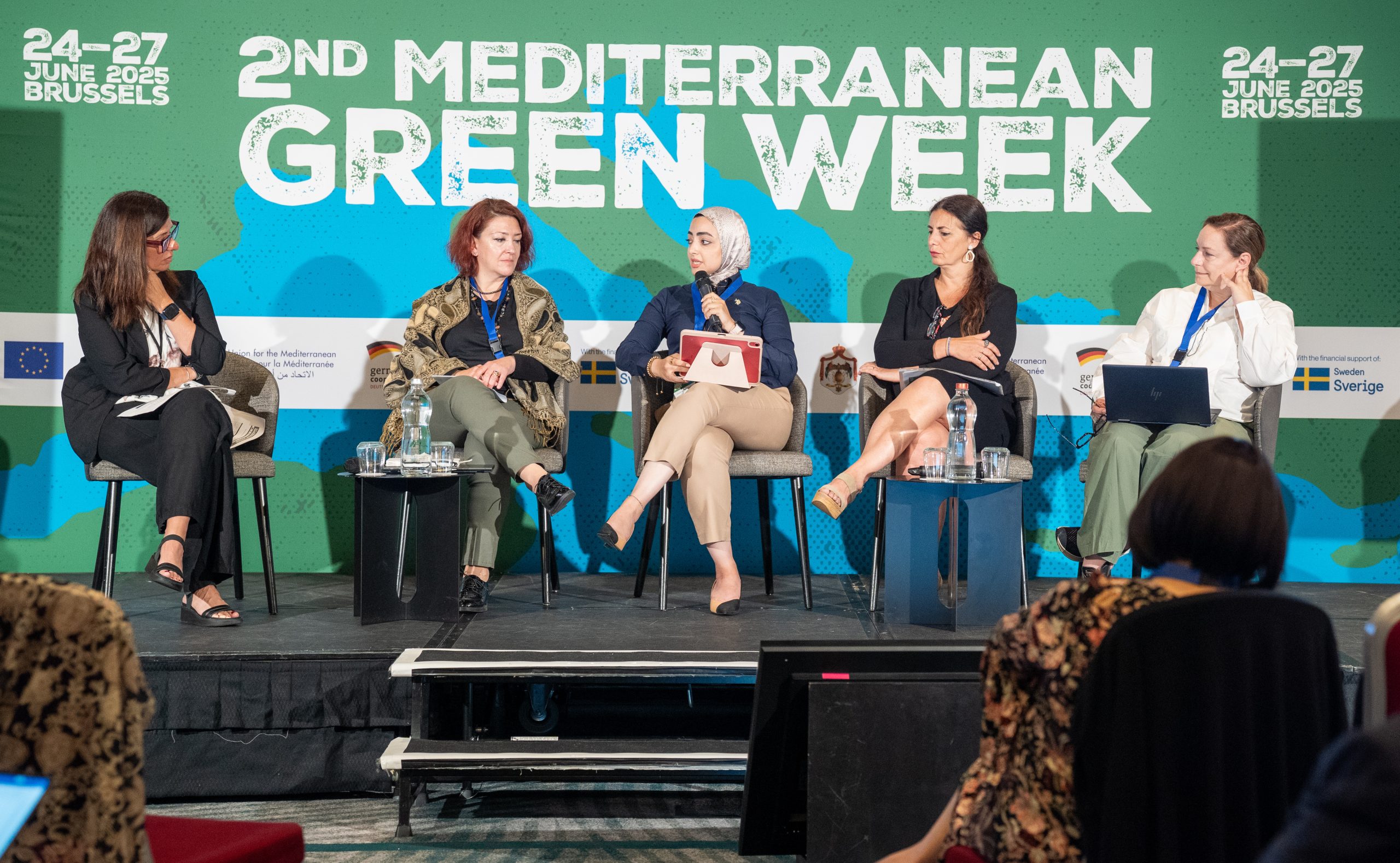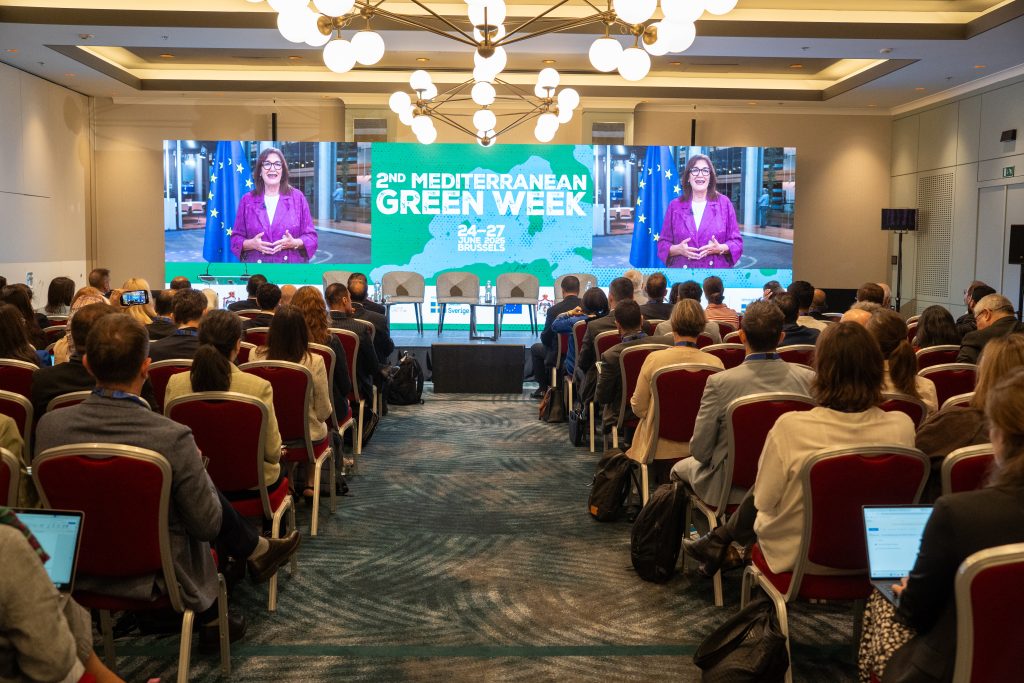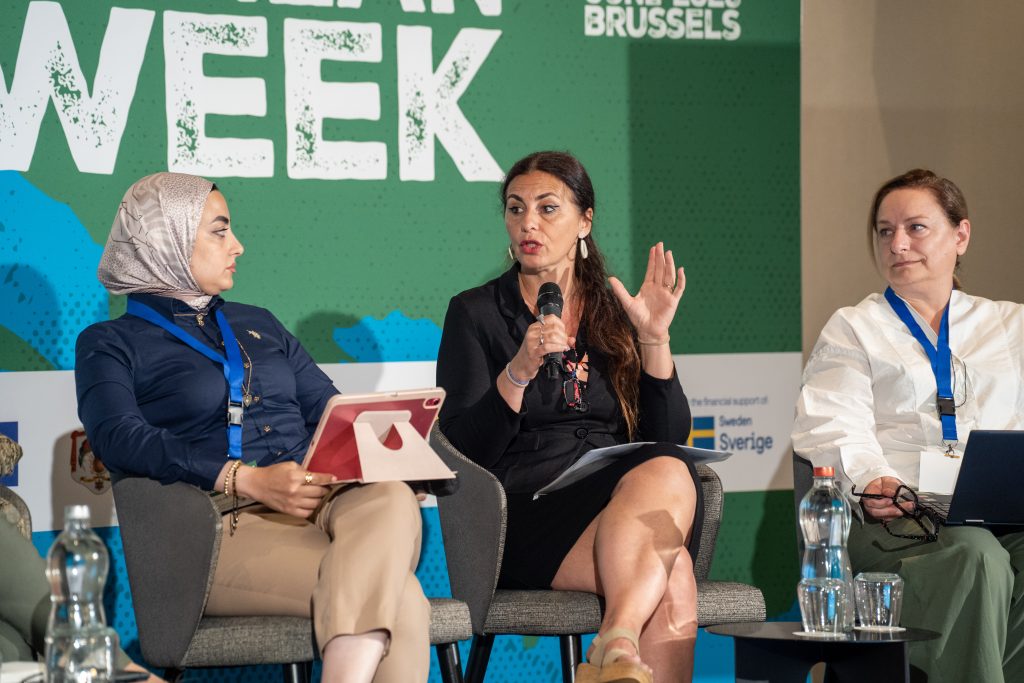The 2nd Mediterranean Green Week of the Union for the Mediterranean (UfM) successfully took place from 24–26 June 2025, in Brussels, despite the many challenges the region faced during that week. Policymakers, experts, youth leaders, and stakeholders from across the Euro-Mediterranean region gathered to reaffirm their commitment to a just and inclusive green transition.

High-level sessions and working groups within this second edition of the Med Green Week covered thematics ranging from NDCs and NAPs frameworks; science-policy interface; pollution, with a focus on prevention; reversing biodiversity loss and promoting ecosystem conservation and restoration; youth engagement, gender mainstreaming, the WEFE nexus, financing the green transition and other integrated approaches.By bringing together, engaging, and connecting energy, environment, climate focal points as well as stakeholders from diverse areas of expertise across the 43 UfM member countries, the 2025 edition of the UfM Med Green Week aimed to pave the way for future partnerships, catalyze action, and promote innovative solutions to address urgent environmental, climate, and energy challenges.
As a key partner of the WES-BCA project and coordinator of its Outreach component on environment and climate action, MIO-ECSDE was active throughout the week, including at an off-site session on the 26th of June, dedicated to the External Evaluation of the implementation of the UfM’s Greener Med Agenda.
The 9th meeting of the UfM Regional Platform on Environment and Climate Action was embedded within the Med Green Week and was dedicated to the following main priority Environment and Climate Action topics for the region, namely:
- Adaptation and Mitigation Climate Agenda – NDCs and NAPs framework.
- Sea level rise (where WES-BCA was a panelist and shared how it will address this very critical for the region issue within its work programme that extends till 2027).
- Forest and landscape restoration.
The objectives of this 9th meeting of the Platform were to:
- Enhance regional cooperation and knowledge sharing to support a unified response to environmental and climate challenges.
- Promote evidence-based policymaking, grounded in scientific findings and practical experience from the region.
- Promote best practices on nature-based solutions and climate adaptation to strengthen ecosystem and community resilience.
On most of the second day, a Capacity Building Workshop on Gender sensitive Climate and Environmental Policies took place, that brought together many members of the UfM Community of Practice (CoP) on Gender Environment and Climate Change. MIO-ECSDE was a panelist here as well, sharing its experience and lessons learned on gender-responsive environmental projects, including WES and WES-BCA. The objectives of the workshop were to:
- Develop collaborative approaches on how to integrate gender sensitive and responsive approaches into UfM environmental and climate policies.
- Identify opportunities for gender-lens investments in climate action and green finance to support women-led businesses and inclusive green growth.
- Boost the Climate, and Women, Peace, and Security (WPS) Nexus.
More on the 2nd UfM Med Green Week can be accessed here
Read in French here

